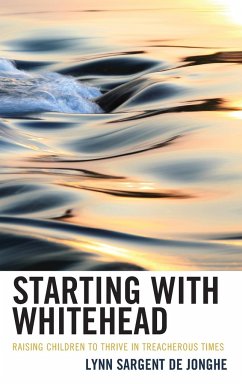Parents and teachers want to give children the best opportunities for success in life. But opinions may vary vehemently about the methods for accomplishing these aims. Starting with Whitehead begins with the premise that today's children will need skills and values to live in a world of fast-paced, turbulent change: creativity, problem solving ability, attitudes of life-long learning, emotional resilience, and appreciation of different perspectives. As we seek guidance on these issues, we are led to the work of Alfred North Whitehead, who brilliantly perceived that the process of change itself is fundamental to our existence, how we experience ourselves and others, and how we interact with the world around us. In his classic work, The Aims of Education, he elaborated a three-stage process of learning, involving romance, precision and generalization. His vision of education calls for exploring real experiences rather than packing scraps of information into passive students. This book offers examples of learning events at each stage that illustrate how adults can help children thrive in a world of change, based on the author's experience working with children as a parent, teacher, principal and policy maker. Drawing on seminal psychological and educational research, De Jonghe sets these events in the context of a vigorous theoretical foundation and proposes specific strategies for success. Her recommendations have relevance for parents, teachers, principals, and policy makers.

